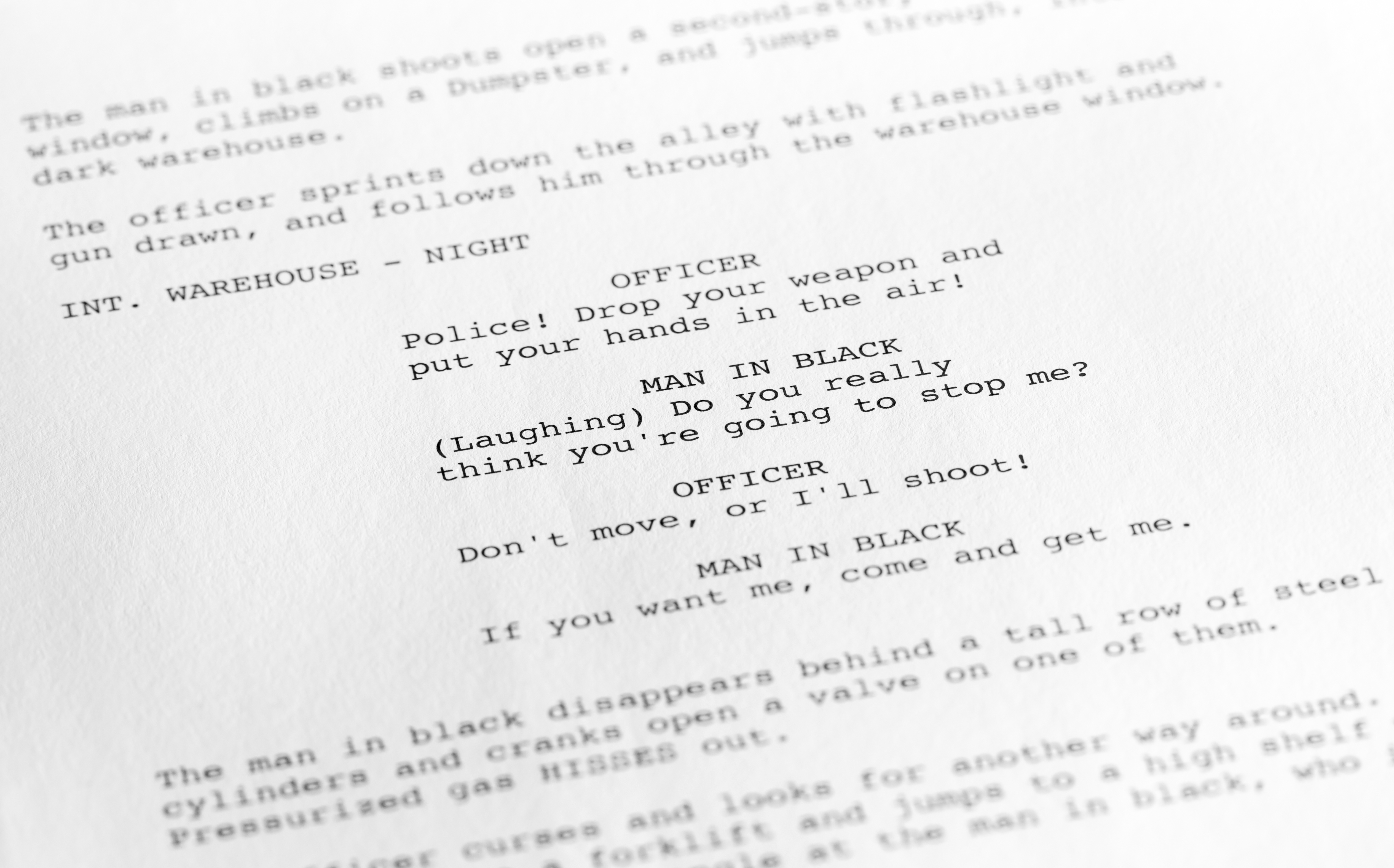How To Memorize Your Lines for Film and Television
Written by: Rachel Comeau
August 24, 2020
If you come from a theater background, you’re accustomed to having rehearsal time to work on lines. Film and television move quickly, which means you have to memorize now! But working fast won’t help commit those lines to memory. You’ll be amazed at what you remember when you follow these tips. Take a deep breath, and let’s get started!
First tip: DON’T MEMORIZE.

It may sound counter-intuitive but stay with it. Memorizing is something you do quickly before a test to remember facts, dates, and formulas. There is no test here. Don’t think, “I have to memorize my lines!” That causes stress and anxiety, which will only hurt you. Instead, think, “I want to understand this scene.” If you start from a place of wanting to understand, your heart and mind will be open. If you know the reason behind the words, the lines will come.
Second tip: READ THE SCRIPT!

You only get to read a script for the first time once! This first read is the closest you will ever get to experience the story as an audience member. So make it count. Don’t read the script from your character’s perspective. Just read and experience. When you’ve finished the script, ask yourself, “What happened?” If you had to boil it down to one sentence, what would your answer be? Keep it simple; Your first instincts are usually correct.
Third tip: READ THE SCRIPT AGAIN!

Only this time, read like a detective. Your goal is to determine the “given” circumstances. You can go back to Uta Hagen’s questions on given conditions to help. Take note of the location, time, weather, beliefs, education, ages, relationships, etc. Note all the clues you find. Finding the “givens” in a script will help you understand the story and help you know your character on a deeper level.
Fourth tip: READ THE SCRIPT AGAIN!

Yup, that’s right. Reread it. This time read from the perspective of your character. Take all of the information you gained from your previous reads and ask yourself, “What does your character want?” If you’ve done the work so far, learning your lines will be a lot easier because they won’t just be senseless words – you’ll have meaning behind what you are saying!
Fifth tip: ASK WHY!

Now that you’ve done vital work on understanding the story and your character, you can start working on the lines themselves. Go line by line, word by word, and really pay attention to each detail. Then ask yourself, “why”? Why are you saying this? When you read the other character’s lines, ask yourself, how does this make me feel? What specifically do they say that triggers you to respond? What do you say that triggers them to speak? Never stop asking why! There is a reason, a thought, a feeling behind every word you speak. Discover it! Once you know why you’re saying something, you’ll never forget.
Sixth Tip: NOTICE PATTERNS.

You know how Shakespeare will have a line where most words start with an S? Maybe your lines have a pattern of their own. Rhyming couplets may not be as common in modern scripts, but if you look for patterns, you will find them- Even if it’s something silly that no one else would notice. If it makes sense to you, you’ll remember it!
Seventh tip: PRACTICE, PRACTICE, PRACTICE.

To make sure your lines are committed to memory, grab an index card or a sheet of paper, and cover your script. Say your line aloud, then move the index card down to reveal your first set of dialogue. If you got it right, keep moving. Read your partner’s lines in your head and then respond. If you’re right again, keep going. If you get something wrong, go back to the top and start again. May sound pain-staking but it works. Another great way to practice this technique is with a friend. If you get a line wrong, have them correct you and start again from the top.
Eighth tip: SLEEP!

That’s right! One of the best ways to commit anything to memory is sleep. The learning and memory process requires three functions. One of which is consolidation. Consolidation is the process where recently learned experiences are transferred into long term memory. Research suggests this process takes place when you sleep. Lucky you! Now, jump into bed and memorize those lines!
Final tip: DON’T SKIP ANYTHING.

There are no shortcuts when it comes to memorizing. Memorizing is like a muscle. The more you practice, the stronger you’ll get. The more you practice, the more you’ll discover which way works for you. Knowing your lines is essential, but so is bringing a fully developed character with strong choices to set. So don’t skip steps. Take everything one word at a time.
Need some advice? We’ve got you covered.
- 10 Tips for Being a Positive Role Model in Your Theatre Community
- 5 Ways to Say “Thank You” to Your Cast and Crew
- 5 Character Development Techniques to Use in Rehearsals
- 5 Small Ways to Get Into (And Embrace) Your Character
- 5 Ways to Take Care of Yourself During Tech Week
- Devising Theatre: 7 Quick Tips for Your First Devising Project
- “I Can’t, I Have Rehearsal”: 5 Tips for Scheduling Your Life When You’re In Theatre
- How to Make Rehearsals A Warm and Welcoming Environment
- 10 Basic Rules of Stage Combat (That Keep Everyone Safe)
- 5 Advantages of Learning Stage Combat
- Theatre Artists on a Budget: How to Be Smart and Healthy While Pinching Pennies
- Productions on a Budget: Finding Props/Costumes/Set Dressings/Set Pieces Without Breaking the Bank
- 6 Steps to Memorizing Shakespeare
- 5 Helpful Tips for Attending Callbacks
- 10 Tricks to Staying Healthy All Season Long
- How to Balance Theatre and Coursework
- 10 Items Every Actor Should Carry in Their Rehearsal Bag
- 10 Items Every Dancer Should Keep in Their Rehearsal Bag
- Discover the Delightfully Nerdy World of Dramaturgy
